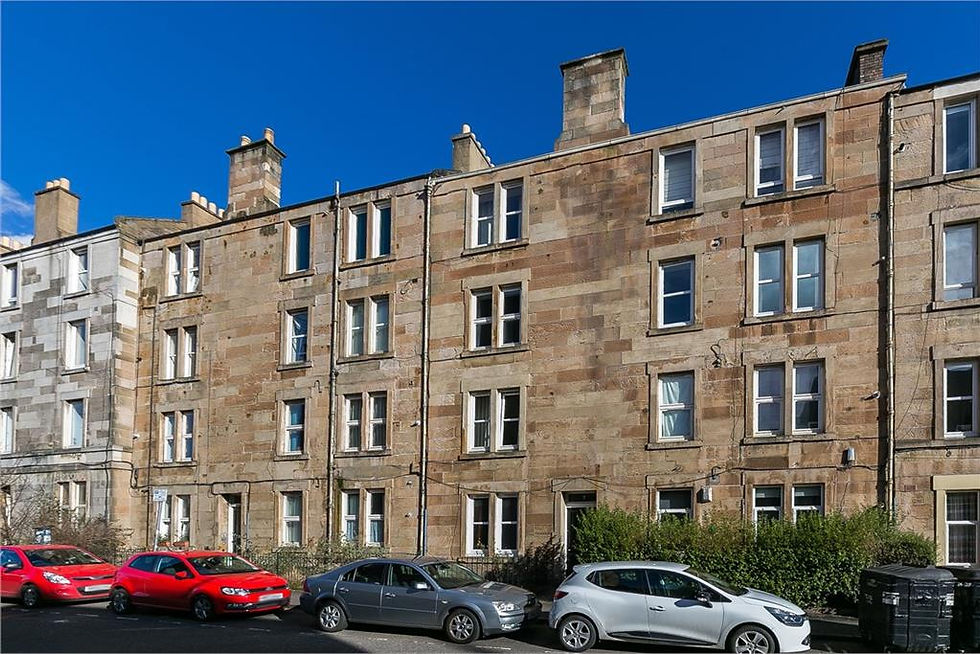Tax Information for investors purchasing in Edinburgh.
- davidwhitmey
- Oct 27, 2020
- 3 min read
Updated: Feb 3, 2021

The following is a simple guide for buy-to-let investors who are new to the Scottish tax system.
Transactional Taxes
2 forms of tax, which fall due on transaction, are applicable to investment property purchases in Scotland. These are:
Land and Building transaction tax (LBTT): is a tiered level tax due on all residential transactions in the UK.
This has historically (since 2017) become due on transactions above £145,000, however in order to inject confidence into the Scottish property market, the government increased the threshold at which this becomes due to £250,000 when Covid-19 restrictions began. This differs from the English rate which was raised to £500,000 in April 2020.
However, since the average property value in Scotland is approximately £155,000, most of the properties that would fall under the ‘investment’ umbrella fall well below this £250,000 threshold and therefore have no LBTT liability.
LBTT in Scotland is charged as follows:
• Above £250,000 to £325,000 – 5% rate • Above £325,000 to £750,000 – 10% rate • Over £750,000 – 12% rate
For a property worth £300,000, for example, the first 250% will be chargeable at the 0% band and then the remaining £50,000 will be chargeable at the 5 % band. Total LBTT payable would be £2,500
Additional Dwelling supplement (ADS) of 4% is compulsory for buyers of investment properties and UK buyers of 2nd homes. However, any single transaction that involves the purchase of 6 or more dwellings will not be subject to ADS if the relief is claimed.
Both taxes (if applicable) are due within 30 days of the effective date of completion of sale and should be arranged by your lawyer during the conveyancing process.

Ongoing tax considerations for UK investors or UK based companies purchasing buy to let (BTL) properties
For private individuals:
For investors buying properties in their own name(s), rental income is taxed in line with your Scottish income tax banding (for Scotland based investors). So if you are a higher rate tax payer this could be as high as 45%
However you can offset certain costs against BTL income. These are:
Insurance, council tax, factoring charges etc.
Any repairs or ongoing maintenance.
Costs attached to letting eg agent fees, certifications.
Legal fees
Costs associated with letting eg advertising/parking/telephone bills
For clarity, from 6th April 2020, mortgage interest IS liable for income tax.
Replacement of Domestic Items Relief
Tax relief is available against rental income for domestic items such as white goods, kitchenware, furniture and carpets that replaces old items (less any proceeds from the sale of the old item)
Capital Gains tax (CGT) CGT is due when you sell an asset for more than it was purchased for (minus stamp duty/solicitors fees/estate agency fees/advertising costs/any capital expenditure/losses from previous BTL investments) Individuals do not pay CGT below their £12,000 personal allowance but become liable for either 18% CGT for lower rate tax payers and 28% for higher rate tax payers above the £12,000 threshold.
For Limited companies there is no CGT, but rather gains are taxable by corporation tax (19%)

For Limited Companies:
At present, limited companies are NOT affected by the mortgage interest relief restriction for private individuals, and therefore interest CAN be used as a legitimate business expense, fully deductible against income.
The Corporation tax rate in Scotland is 19% which is considerably lower than the 40-45% liability of higher rate tax payers. Therefore this can be a favourable option to buying personally, especially if the company owns - or will eventually own - multiple properties.
Whether this is advantageous or not is down to how much money you aim to take out of the company each year. As a company there is no personal allowance of £11,700 as there is for individuals and so, in short, it becomes less advantageous to buy property within a company if you only have 1 or 2 properties.
There are also higher accountancy costs of operating as a limited company due to the more stringent statutory filing requirements for companies. It should be noted that if borrowing money to fund a property purchase within a Limited company, the interest rate can be considerably higher than the equivalent for comparable BTL mortgage for an individual.
Finally, it must be advised that it is highly beneficial to decide your long-term plan with regards to how many properties you plan to buy in advance, as retrospectively moving assets into a company after owning them for a few years will incur further LBTT and ADS taxes and potential capital gains tax (CGT).
If you are a buy to let landlord, or are interested in buying investment property, please contact us and we can put you in touch with a qualified accountant who can advise you.






Comments